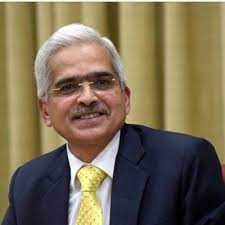BANKS
Covid's second wave harmed financial institutions less than projected: RBI Guv
Capital and liquidity buffers are reasonably resilient to withstand future shocks, RBI Guv Shaktikanta Das said.
Capital and liquidity buffers are reasonably resilient to withstand future shocks, RBI Guv Shaktikanta Das said.

The second wave of Covid-19 has harmed the balance sheets of banks less than what was anticipated earlier and economic activity has regained momentum from late-May, Reserve Bank of India Governor Shaktikanta Das said on Thursday.
Das believed that capital and liquidity buffers are reasonably resilient to withstand future shocks. "The dent on balance sheets and performance of financial institutions in India has been much less than what was projected earlier, although a clearer picture will emerge as the effects of regulatory reliefs fully work their way through. Yet, capital and liquidity buffers are reasonably resilient to withstand future shocks, as the stress tests presented in this report demonstrate," he said in the bi-annual Financial Stability Report (FSR) of the RBI.
In the last FSR, the RBI had projected the gross non-performing assets (GNPA) ratio of banks swelling to 13.5% in a year by September from 7.5%.
The latest issue of the FSR, however, indicates that the GNPAs remained flat at 7.5% in March 2021 as well, and are expected to rise to only 9.8% as per the baseline estimate.
Das, however, raised concerns over rising data breaches and cyber-attacks as among the risks for the recovering economy. Other issues included firming global commodity prices.
"The recovery that had commenced in the second half of 2020-21 was dented in April-May 2021, but with the wave of infections abating as rapidly as it had set in, economic activity has started to look up in late May and early June," Das said.
While the recovery is underway, new risks have emerged on the horizon, Das said, adding these include the still nascent and mending state of the upturn, international commodity prices and inflationary pressures, and rising incidence of data breaches and cyber-attacks.
On cyber-attacks, the FSR said we have witnessed attempts to target the payment ecosystem of the country by adopting multiple modus operandi, including the theft of payment card credentials and compromise of ATM infrastructure.
The Computer Security Incident Response Team for the Financial Sector (CSIRT-Fin) under the Indian Computer Emergency Response Team (CERTIn) issued various early warning threat intelligence alerts in near real time to enable mitigation of attacks by the financial sector organisations, the report said.
The FSR also raised concerns over cyber-attacks as a challenge for banks along with climate-related risks, increased competition from the entry of fintechs and the growing presence of big tech in financial services.
The governor emphasised that sustained policy support accompanied by further fortification of capital and liquidity buffers by financial entities remain vital.
“Even as our financial system remains on the front foot and prepares to intermediate in meeting the resource needs of an economy on the move towards a brighter post-pandemic future, the priority is to maintain and preserve financial stability,” Das said.
Banks will need stronger capital positions, good governance and efficiency in financial intermediation, Das said.
